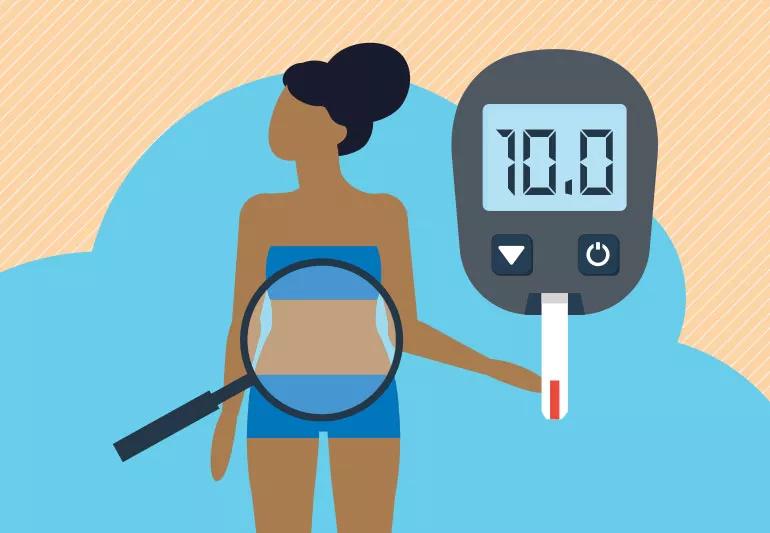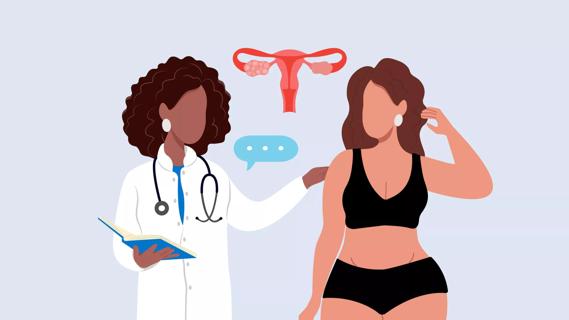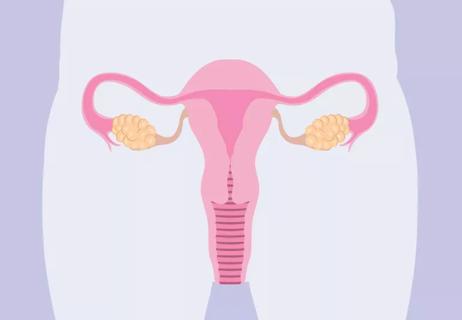How these lifestyle changes may help restore insulin sensitivity

Did you know that lifestyle, stress and nutrition all play a role in your polycystic ovary syndrome (PCOS) and hormone imbalance?
Advertisement
Cleveland Clinic is a non-profit academic medical center. Advertising on our site helps support our mission. We do not endorse non-Cleveland Clinic products or services. Policy
“The good news is that many lifestyle changes can pull you out of the metabolic chaos of PCOS,” says endocrinologist Ula Abed-Alwahab, MD. “It can also decrease your chances of developing other related conditions such as diabetes, heart disease, hypertension, sleep apnea, anxiety, depression and infertility.”
Video content: This video is available to watch online.
View video online (https://cdnapisec.kaltura.com/p/2207941/sp/220794100/playManifest/entryId/1_7dct6nbn/flavorId/1_5f3sgelj/format/url/protocol/https/a.mp4)
Kathryn Goebel, MD, explains how hormones and food choices impact PCOS, and offers simple tips to manage it.
Insulin resistance is one of the root physiological imbalances in most, if not all, cases of PCOS. This happens when your pancreas needs to pump out more and more insulin in response to high blood sugar levels.
Insulin lowers your blood sugar by storing the glucose in cells. The cells become resistant to the constant insulin and need more to be signaled to lower the blood sugar. When this resistance goes on for a while, you have high insulin and high blood sugar.
“As it would happen, insulin is a fat-storage hormone that concentrates fat in your abdominal region,” says Dr. Abed-Alwahab. “High insulin levels can tell the ovaries to make more testosterone. That’s why some women with PCOS have symptoms of excess androgens, like dark hairs on the face and belly.”
If you have PCOS, ask your doctor for your fasting insulin and fasting glucose level to be drawn, along with a HgbA1C, which is an average of blood sugars for the past 12 months. Shoot for an insulin level under 10. Fasting glucose should be under 90 or so.
Advertisement
The most common contributor to insulin resistance is eat a diet that’s high in simple carbs and processed foods.
“If you eat cereal for breakfast, a sandwich for lunch and pasta for dinner with a glass of wine, the insulin receptors on your cells become numb to the insulin,” explains Dr. Abed-Alwahab. “Your pancreas has to then work overtime to produce more and more.”
Another important contributor? It’s stress – whether it’s working 80 hours a week at a job you dislike, not allowing enough sleep to rest and repair, being overcommitted (and having overcommitted kids) or internal stress like chronic infections, eating foods that react with your immune system or having a high toxic load.
These stressors tell your brain to send a signal for cortisol, the stress hormone, to be released from your adrenal glands. If cortisol is being overproduced on a regular basis, it can lead to insulin resistance.
What can you do to restore insulin sensitivity? Does it make sense that only taking a birth control pill to control the downstream effects of this underlying process is more like putting a bandage on the problem than a cure?
“There’s a large subset of women with PCOS who will thrive on a low-grain or grain-free food plan – similar to a paleo way of eating,” says Dr. Abed-Alwahab. “Start with a JERF (Just Eat Real Food) diet consisting of whole, unprocessed, unrefined foods.”
Exercise is a great way to help your body become more sensitive to insulin because it decreases the amount of insulin you need to signal cells to decrease your blood sugar. But be careful of excessive exercise because this may increase the demand on your adrenal glands, which can cause more problems. Rather, moderate exercise such as burst/interval training and yoga are the better route to go.
“If you’ve been told you have PCOS and you want to correct the metabolic imbalance at the root, avoid bread and milk,” she adds. “If you want to take a deeper dive into your specific risk factors, schedule an appointment with an integrative or functional medicine practitioner.”
Advertisement

Sign up for our Health Essentials emails for expert guidance on nutrition, fitness, sleep, skin care and more.
Learn more about our editorial process.
Advertisement

Hormonal imbalances and insulin resistance can cause weight to accumulate around your midsection

Diet won’t cure polycystic ovary syndrome, but healthy eating can help you feel your best

The supplement may help with weight management and blood sugar levels

PCOS can cause skin problems, but birth control pills, hormonal medications and topicals can help

The common hormonal condition is linked to insulin resistance, which can cause weight gain

While this hormonal condition can be hereditary, there are other risk factors to also consider

Lifestyle changes, like a healthy diet and exercise, can help with fertility issues

Track your blood sugar levels and pay attention to any symptoms, like feeling thirstier than normal

Even small moments of time outdoors can help reduce stress, boost mood and restore a sense of calm

A correct prescription helps your eyes see clearly — but as natural changes occur, you may need stronger or different eyeglasses

Both are medical emergencies, but they are very distinct events with different causes